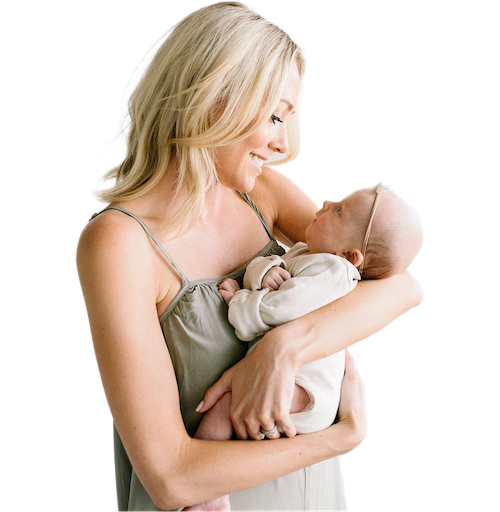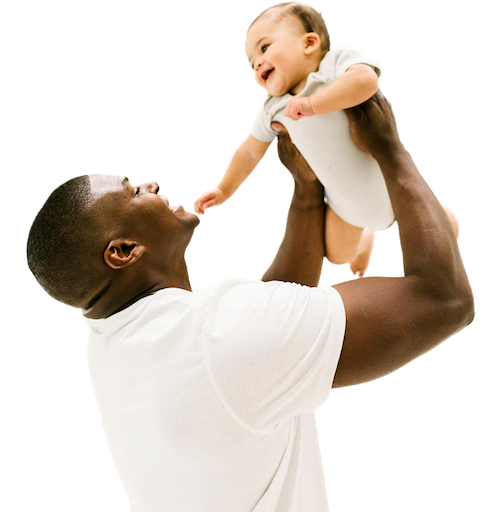At fourteen months, your baby is likely on the move and starting to find some new ways to be independent! Let’s talk about my most frequently asked questions including 14 month old sleep schedules, naps, regressions, and more!

The 5–24 Month Collection
stars ( reviews)
If sleep is feeling tricky with your 14 month old, my 5-24 Month Collection will help you achieve consolidated nights, restorative naps, and handle all of the bumps along the way. I’ll teach you a customizable, step-by-step plan that fits your family’s priorities and allows you to remain emotionally connected to your little one through the entire process.
Learn MoreWhat are the wake windows for a 14 month old? anchor
At 14 months, wake windows can vary quite a bit from baby to baby. Some babies this age still need two naps, while others have transitioned to one nap. For babies still taking two naps, wake windows are between 3-4 hours. For those taking one nap, wake windows are between 4-6 hours.
Here’s a guide for a daily routine for your 14 month old taking two naps:
About 3 hours after Wake Time = Nap 1
About 3-3.5 hours after the end of Nap 1 = Nap 2
About 3.5-4 hours after the end of Nap 2 = Bedtime
Here’s a guide for a daily routine for your 14 month old taking one nap:
About 5-6 hours after Wake Time = Nap
About 4-5 hours after the end of Nap= Bedtime
Expert Tip: Are you wondering if it’s time for one nap? Let me walk you through everything you need to know about how to transition from 2 naps to 1.
14 Month Sleep Schedule Guidelinesanchor
Every baby is unique and your little one’s day will depend on when your baby wakes, how long your baby naps, and individual cues. These age-appropriate guidelines are not intended to be a rigid schedule, simply a guide for setting up a flexible routine.

Text version of 14 month sleep guidelines table
| Daytime Feedings | 3 meals, snacks as needed |
|---|---|
| Goal Daytime Sleep: | 2.5-3 hours |
| Sweet Spot Bedtime: | 7:00-8:00 pm |
| Number of Naps: | 1-2 |
| Wake Windows: | |
| Goal for 2 naps: | 3-4 hours |
| Goal for 1 nap: | 4-6 hours |
For more details on these recommendations, keep reading.
What is a sample sleep schedule for a 14 month old?anchor
Here are two schedules for 14 month olds — one with 2 naps and one with 1 nap — to help you see how a day might play out. Keep in mind that these are simply examples and your days will vary based on your little one’s wake time, nap lengths, and wake windows.

Text version of 14 Month Old Sample Schedule on 2 Naps table
| Time | Activity |
|---|---|
| 6:00 am | Wake |
| 6:30 am | Breakfast (solids) |
| 8:45 am | Snack/Nursing (optional) |
| 9:15 - 10:30 am | Nap 1 |
| 11:00 am | Lunch (solids) |
| 1:30 pm | Snack/Nursing (optional) |
| 2:00 - 3:30 pm | Nap 2 |
| 3:40 pm | Snack/Nursing (optional) |
| 5:45 pm | Dinner (solids) |
| 7:00 pm | Bedtime Snack/Nursing (optional) |
| 7:20 pm | Bedtime |
14 Month Old Sleep Schedule with One Nap:
Here is a sample 14 month old sleep schedule for a baby who has transitioned to one nap. This is just a guide for what a day may look like based on appropriate wake windows but can vary depending on nap lengths and individual caloric needs.

Text version of 14 Month Old Sample Schedule on 1 Nap table
| Time | Activity |
|---|---|
| 7:00 am | Wake |
| 7:30 am | Breakfast (solids) |
| 9:30 am | Snack/Nursing (optional) |
| 11:30 am | Lunch (solids) |
| 12:00 - 3:00 pm | Nap |
| 3:30 pm | Snack/Nursing (optional) |
| 6:00 pm | Dinner (solids) |
| 7:00 pm | Bedtime |
How long should a 14 month old nap? anchor
Most 14 month olds need 2-3 hours of sleep during the day. Some 14 month olds are able to reach this total by taking one long nap, while others need two naps per day.
14 Month Old Sleep Schedule with Two Naps: Ideally, your baby is getting 2-3 hours of daytime sleep. What does this look like? For some 14 month olds, two naps of 1.5 hours each is perfect. For others, a 2 hour nap and a 30-45 minute nap works best. If your 14 month old is taking two naps, we do want at least one of those naps to be an hour or longer (to ensure we’re getting good restorative sleep). We also want to avoid letting any single nap go longer than two hours. Doing this allows for enough active awake time to get good night sleep and to hit that sweet spot bedtime of 7:00-8:00 pm.
14 Month Old Sleep Schedule with One Nap: Ideally, your baby's nap will be 2-3 hours long. I do recommend waking your baby at 3 hours if they're still napping. Doing this allows for enough active awake time to protect great night sleep and to aim for the sweet spot bedtime of 7:00-8:00 pm.
How many naps should a 14 month old take?anchor
Some 14 month olds need two naps per day, while others will only take one.
While some 14 month old babies are ready to transition to one nap, some just aren’t able to handle the longer wake windows without becoming overtired. (Think 5-6 hours before the nap vs only 3 hours.)
The transition to one nap is usually much smoother when your baby is fully ready for it. What does that look like? Your baby consistently shows signs of being ready to drop a nap for 1-2 weeks. When we drop a nap too early, we often see other sleep issues appear, like night wakings, early morning wakings, and short naps.
Your 14 month old may be ready to transition to one nap if they are consistently showing these signs:
Protesting or refusing a nap
Taking short naps when this wasn’t previously an issue
Waking before 6:00 am daily or almost daily
Taking longer than 20 minutes to fall asleep at naptime and/or bedtime
How much sleep does a 14 month old need?anchor
We want to aim for 12-15 hours of total sleep in a 24-hour period for a 14 month old. Our goal is 10-12 hours of overnight sleep and 2-3 hours of naps.
What time should a 14 month old go to bed?anchor
Bedtime for a 14 month old is ideally between 7:00-8:00 pm. Having bedtime fall in this range helps babies fall asleep and stay asleep during the night. I want you to know, if bedtime falls outside of this range for your 14 month old and sleep is going well, you can keep doing what works for your family!
If, however, bedtime is falling after 8:00 pm and your 14 month old is experiencing false start bedtimes, waking in the middle of the night, or having early morning wakings, try shifting bedtime into the sweet spot range of 7:00-8:00 pm for a couple weeks, as this can help.
There are a few times when shifting bedtime earlier than 7:00 pm can help with nighttime sleep for your 14 month old. Consider moving bedtime earlier if:
A nap was refused.
Daytime sleep was less than 2-2.5 hours total.
Your 14 month old has been awake at least 3.5 hours and is having a really hard time making it to bedtime (This may be especially needed if your baby has recently transitioned to one nap or is sick.).
Expert Tip: Having a predictable bedtime routine is an important part of bedtime success. If you’re not sure where to start, check out the blog: Baby’s Bedtime Routine.
My 14 month old won’t sleep. Why is my 14 month old refusing to nap? anchor
If your 14 month old is refusing to sleep, you're not alone. When your 14 month old is fighting naps or your 14 month old won’t sleep at night, I’d like you to consider if:
Your baby might have a physical need: When babies suddenly stop sleeping, I always want to make sure that they aren’t sick or teething. Sometimes disrupted sleep is the only sign your baby isn’t feeling well. A quick trip to the pediatrician to get those ears checked might be worth your time.
Your baby’s wake windows need to be lengthened: As babies get older, wake windows need to lengthen. If your baby is on the lower end of the age-appropriate range, add a few minutes to each wake window. You’ll want to do this gradually to prevent overtiredness. Be sure to give your baby a few days to adjust to any changes and then reassess.
Your baby is overtired: Being overtired can make it hard for your baby to fall asleep and stay asleep. If wake windows have recently been increased or your baby recently dropped a nap and now they’re fighting sleep, slightly decrease wake windows to see if this helps.
Your baby is experiencing separation anxiety: We sometimes see a surge of separation anxiety around 14 months. This may look like crying when entering their room, standing in the crib in protest, or showing strong preference for one caregiver at bedtime. Practice short periods of intentional separation during the day and play games like Peek-a-Boo to help ease separation around sleep times.
Your baby is learning new skills: When babies learn new skills, giving them opportunities to practice those skills during awake time decreases their motivation to practice during sleep time.
Your baby’s body needs more active awake time: Consider adding in more activity during your baby’s awake time. Dance around the kitchen, create an obstacle course out of couch pillows, or play in the backyard together to get out that energy. Being able to move their body and explore during active awake time also helps your baby be tired enough for consolidated naps and nights.
Your baby’s sleep environment needs adjusting: We want the room to be really dark (use code Cara for 10% off) with a sound machine (use code CARA20 for 20% off). This helps minimize any stimulating light or noise. It’s also important to make sure that your baby is dressed comfortably for sleep, especially as seasons change. Sleep environment is key to sleep success.
Your baby needs time to wind down: Giving your baby time to wind down before a nap helps with transitioning from awake time to sleep. This doesn’t need to be complicated, but following a few predictable steps before a nap really does cue your baby’s brain that it’s time for sleep. Here’s an example: diaper change, zip up sleep sack, sing a song, darken the room, and turn on the sound machine.
If sleep has always been tough, my 5-24 Month Collection is here for you. I'll teach you an emotionally-connected, holistic, and fully-customizable sleep plan for great nights, predictable days, and easier transitions from now to 24 months. If your nights are great, but naps are a constant struggle, my Conquering Naps class can help. Let me walk you step-by-step through a customized approach to better naps and less stressful days, that meets your family right where you are.
How much milk should a 14 month old drink?anchor
According to the American Academy of Pediatrics, a 14 month old baby should drink about 16 ounces of whole milk per day. We want to be sure that your baby isn’t filling up on milk alone though. To help with this, serve milk with meals or a snack.
For more help with making the switch to whole milk, I’d love to walk you through the transition from formula or breastmilk to whole milk as well as from the bottle to the sippy cup.
For nursing mamas, if breastfeeding continues to work for you and your baby, there is no pressure to wean and transition to whole milk just because of your baby’s age. Continue your nursing journey for as long as your family desires.
Also, please check with your pediatrician if you’re not sure if cow’s milk is the best option for your baby or if you have more questions about adequate nutrition for healthy growth and development.
When should I stop giving my toddler milk at bedtime? anchor
It depends! The American Academy of Pediatrics recommends children completely transition from bottle to cup between 12 and 18 months, so if your 14 month old is still getting a bottle of milk before bed, you may decide it is a good time to switch to a cup.
If giving your 14 month old milk or nursing at bedtime is working for you and your baby, there is no rush to make a change (just be sure to brush your baby’s teeth after they drink milk at bedtime). When you’re ready to drop the bottle or nursing session from your bedtime routine, let me walk you through stopping the bottle at bedtime.
If, however, your baby seems to need milk or nursing to fall asleep at bedtime and/or is waking during the night and needs milk or nursing to get back to sleep, please know that I can help. In my 5-24 Month Collection, I’ll walk you step-by-step through a holistic, fully customizable approach to teaching your baby to fall asleep independently at night and achieve 10-12 hours of consolidated night sleep.
What are some 14 month old milestones? anchor
You may notice your 14 month old:
Saying a few words, like “mama” and “dada”
Climbing on furniture or up the stairs
Scribbling when given paper and a crayon
Taking a few steps or walking independently
Trying to do things on their own, like feeding themselves with a spoon or even wiping up spilled water
Your 14 month old may also more fully understand the concept of object permanence and show signs of increased separation anxiety.
As you’re looking at these milestones, please keep in mind that milestones are based on age ranges. Every baby develops at their own pace, and your baby may meet these milestones before or after 14 months. Check with your pediatrician if you have any questions or concerns about your baby’s development.
What are some activities I can do with my 14 month old? anchor
Here are a few ideas for activities to try with your 14 month old:
Encourage your little artist with some large crayons and paper or finger painting. If you’re not a fan of messy activities, try using water to “paint” on construction paper or something like a fingerpaint kit.
Promote social skills by playing with stuffed animals or dolls.
Create a little photo album- think pictures of family members, animals, or even colors. You can DIY or use a photo album website. This is a great way to engage with your baby and help with language development!
Build an obstacle course using soft objects, like pillows or cushions. Add in some soft balls to entice your little one to try rolling, throwing, and chasing.
I have some favorite toys for 14 month olds here.
You’ve probably noticed your fourteen month old is trying to be more independent and may also be more mobile. This combination creates a need for close supervision as your baby continues to explore the world around them. Now is a great time to babyproof around the house for any new safety concerns.
Is there a 14 month old sleep regression?anchor
There can be! I want you to know that, although there are some ages where sleep regressions are more common than others, babies can truly show signs of sleep regressions at any age and for many different reasons.
If your baby is showing signs of a 14 month old sleep regression, please know:
Consistent changes in sleep at 14 months may be a sign they’re ready to transition to one nap.
There is often a peak in separation anxiety that can cause sleep issues around 14 months.
Major developmental strides around this age can impact sleep.
Expert Tip: Having a consistent approach to sleep helps keep your baby’s sleep on track during sleep regressions.
My 14 month old won’t sleep in their crib. What can I do? anchor
I know it can be so hard when your 14 month old won’t sleep in their crib. Let’s consider what might be happening:
If your 14 month old was previously sleeping in their crib and suddenly stopped, we want to be sure they aren’t experiencing any physical discomfort like sickness or teething.
If you’ve ruled out physical discomfort and your baby is healthy, be sure to consider these reasons a baby might refuse sleep. It’s important to remain consistent with any healthy sleep habits your baby already has. Often, letting those healthy habits slide can turn a little bump in the road into an ongoing sleep struggle.
If your 14 month old simply will not sleep in their crib, I can help. My 5-24 Month Collection is a customizable, step-by-step plan to help navigate sleep regressions, manage nap troubles, work towards 10-12 hours of consolidated nighttime sleep in the crib, and more!
Can you sleep train a 14 month old?anchor
You can! It’s never too late to have a good sleeper. If you’ve decided that sleep training is the best option for your family, I’d love to help. The 5–24 Month Collection is a holistic plan that is fully-customizable to meet your family’s goals. I’ll give you a step-by-step plan for consolidated nights, solid naps, and all the bumps along the way while remaining emotionally connected to your baby.
Still have a 13 month old? Check out 13 month sleep schedules. Already have a 15 month old? I've got you covered with my 15 month old sleep schedules.
References
5 Sources
Healthy Children, American Academy of Pediatrics. (2023). Recommended Drinks for Children Age 5 & Younger
Mindell et. al. (2008). Developmental aspects of sleep hygiene: Findings from the 2004 National Sleep Foundation Sleep in America Poll
Mindell and Williamson. (2017). Benefits of a bedtime routine in young children: Sleep, development, and beyond
Paruthi et. al. (2016). Recommended Amount of Sleep for Pediatric Populations: A Consensus Statement of the American Academy of Sleep Medicine
Tham, Schneider, and Broekman. (2017). Infant sleep and its relation with cognition and growth: a narrative review
Keep in mind that the information and content on this blog is for informational purposes and should not be considered medical advice. If you have questions about your child, please reach out to your doctor.








